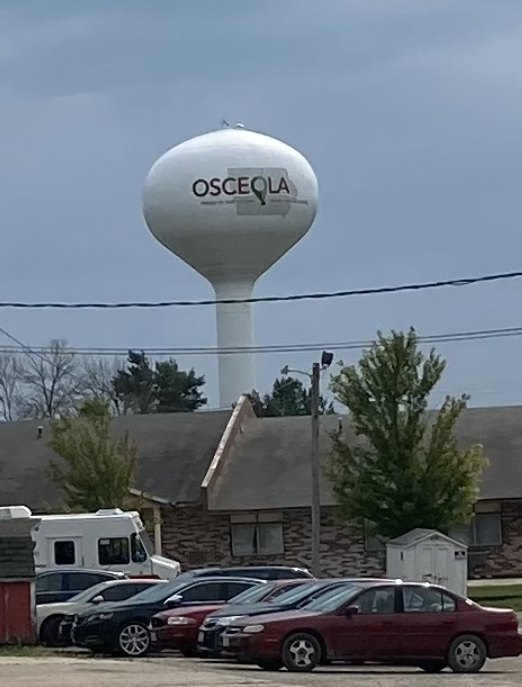The city of Osceola, Iowa, only 50 minutes from the capital Des Moines, is grappling with the rapid impacts of a drought crisis.
The city’s water supply has been a topic of concern for years because it relies on a singular water source: West Lake. Currently, the lake is seven feet below the normal level and has been dropping around two inches per week.
The water level has been in critical condition for more than two years and needs about 15 inches of rainfall to correct the drought. June, Osceolas heaviest rain period, only receives an average of 4.5 inches.
Even with recent rainfall, it seems the only option to replenish the lake is through other intervention.
Junior Erin O’brien believes this problem could have been avoided with greater foresight. “I would be upset that officials did not try to implement a solution before the water was in critical condition,” she said.
The Osceola Water Works Board along with city leadership has been motivating its citizens to conserve. This includes heavily encouraging a bottled water routine.
The town, holding just over 5,000 residents, has banded together to help combat this crisis. Long-time local Diane Ogbourne has been taking her own actions,
“We’ve been really trying to conserve by not letting the water run when we brush our teeth and different things,” Ogbourne said. “I started buying bottled water to make our coffee with and to drink, just to help out with the situation.”
Senior Miah Townsend is frustrated by the lack of response from officials. “I do think it’s unfair if the water problem had been known,” she said.“There’s no reason the city should have let it get to this point without a predetermined solution.”
The crisis is not only affecting people’s home lives, but even school and work. The Clarke Community School District was forced to shut off drinking water in all its buildings. To help rectify the situation the district had its first delivery of 36,000 water bottles. Clarke High School goes through about a pallet of water a week, around 288 gallons of water.
General water consumption guidelines recommended by health authorities including the U.S. National Academies of Sciences suggest adults drink eight, 8-ounce glasses of water per day – equal to roughly a half-gallon. Clark High School has a total of 418 students grades 9-12. With 418 students going through only 288 gallons a week, this guideline cannot be met without students drinking water at home or bringing their own supply to school.
Senior Avery Carter believes she would feel bad drinking the recommended amount of water if she were in Osceola. “I’d feel guilty just because it is more expensive to buy water but additionally, that’s the only available water and you have to trust city officials know what they are doing,” she said.
The city’s water board is in desperate need of a solution. They have been in contact with the Iowa Department of Natural Resources about the possibility of using treated wastewater to replenish the water supply. Though treated wastewater couldn’t be used immediately for consumption, it can be reused for landscape irrigation, dust control at construction sites and groundwater recharge for future use as a drinking water source.
Other representatives are pushing for a new 800-acre reservoir that would increase the town’s daily water supply tremendously. Unfortunately, a project like this would cost around 100 million dollars. Osceola City Administrator Ty Wheeler said, “At best, we’re about eight to 10 years out before you can draw water from a new reservoir.”
Local voters have gone to the ballot box to decide the funding for this project so that revenue is established, and yet hardships faced by the citizens of Osceola seem to have no hope of resolving themselves. Every solution to creating drinkable water for the town has time restraints, but the townspeople remain optimistic that they can persevere through their drought crisis.










Andrew Leonard • Apr 7, 2024 at 5:47 pm
I hope the city finds a solution. Having some options and opening a voting poll along with the costs of each option so that the community can vote could be the best place to start. I can’t imagine having to worry about where we would get water from.